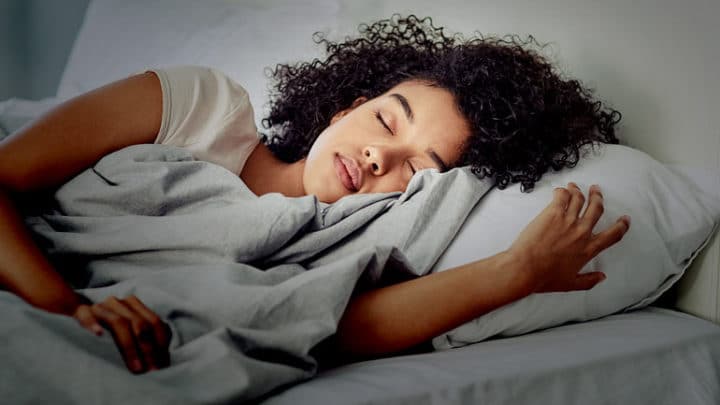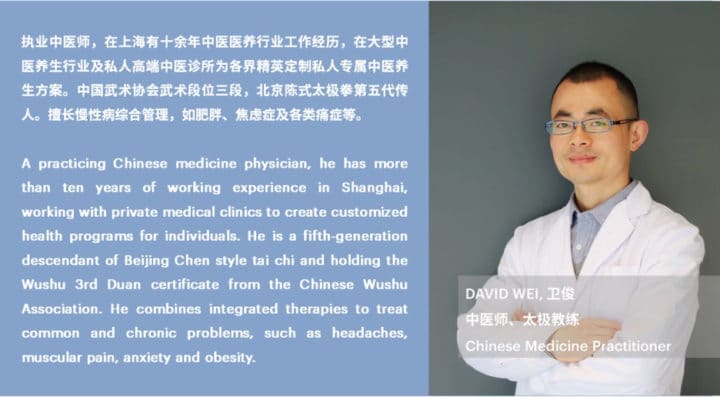Maximizing Your Sleep with SANGHA Retreat by Octave Institute
November 9, 2021 by Hidden Doorways

“OCTAVE TIPS” is a new column from Octave Institute, who oversees the immersive wellness retreat, SANGHA Retreat set in Suzhou, China. Learn top lifestyle tips from their wellness experts in an easy and accessible way, advising on everything from diet, breathing, sleep, exercise, mindfulness, and healing, helping to foster a happy, healthy and comfortable attitude to life and way of living.
OCTAVE TIPS – Ancient Chinese Sleep Regimen
As we reset our clocks back for Daylight’s Savings, it’s an opportunity to reset our sleep patterns and become more aware of our circadian rhythm. While the holidays are busy time, it is important to not sacrifice sleep. Studies have shown that a long-term lack of sleep can easily lead to headaches, anxiety, arrhythmia and other physical discomforts, so only by ensuring good quality sleep, and enough of it, we can live the best versions of ourselves.
Learn tips on how to feel more rested, how to position your body and the importance of sleep from SANGHA Retreat’s Chinese Medicine Practitioner, Doctor David Wei. Plus learn how to improve your quality of sleep, relieve fatigue and stay energized.
Tip I | It’s All About The Position
The human body is influenced by Earth’s magnetic field at all times, so maintaining a posture consistent with the direction of the earth’s magnetic force can help facilitate sleep. If a person sleeps in the direction perpendicular to the direction of the earth’s magnetic lines, Earth’s magnetic field will affect the human bio-current, which can cause insomnia or dreaming and affect the quality of sleep.
Tip II | Sleeping Posture
Sleeping posture helps regulate the body. Studies have shown that sleep in a bow-like position can help reduce the force of the earth on the human body. As the human heart is mostly on the left side of the body, lying on the right-side can reduce the pressure on the heart. At the same time, it is best not to put your hands near the heart to avoid being woken by nightmares.
Tip III | Sleeping Time
It is best to get up before sunrise and not sleep in too late. Generally, it is recommended to sleep for about eight hours per day, however, those who are ill may need to increase their sleep time appropriately.
Sleep Before 11:00 P.M, No Later than 1:00 A.M
If a person does not have enough sleep or the quality of their sleep is poor, they could suffer from depression, loss of concentration, headaches, dizziness, muscle pain and fatigue. If you lack sleep for a long time, it can impact the liver, damage the kidneys and gradually cause the body to lose Qi.
Even taking supplements and exercising every day won’t undo the damage done by sleep deprivation or poor sleep quality.
Some people think that sleep during the day can make up for staying up late at night, but even if it feels like your body is being replenished, the Qi has been damaged. Therefore, it is recommended that men and women, young and old, fall asleep before 11:00 p.m, and no later than 1:00 a.m every day.
Take a Nap or Sit Still at Lunchtime
Taking a nap around midday (11:00 am to 1:00 pm) can give energy for the afternoon and strengthen the body. Taking a nap at noon is also good for the heart and mind. If time is limited, you can choose to meditate for a quarter of an hour with your eyes closed to recuperate.
In fact, closing your eyes and sleeping for three minutes at noon is equivalent to getting two hours of sleep, so you don’t need a long break to relieve fatigue. Five minutes of sleep can be equivalent to the sleeping for six hours if you fall asleep between 11pm and 1am.
Tip IV | Sleeping Time Period
Whether you are a “night owl” or an “early to bed, late to rise” type of person, you should listen to your own biological clock to improve the efficiency of your sleep and rest.
According to traditional Chinese medicine, the two hours of Zi (11:00 p.m. to 1:00 a.m.) and Noon (11:00 p.m. to 1:00 p.m. in the daytime) are the times when the temperature changes the most, and the body needs to rest properly during this period.
Tip V | Soak the Foot Before Sleep
Soaking your feet before bed improves blood circulation, relieves fatigue and helps you to fall asleep.
People with insomnia should soak their feet in warm water before going to bed to promote interaction between the heart and kidney. The heart and kidney intersect means that water and fire are in harmony, thus promoting the harmony of Yin and Yang, and when Yin and Yang are in harmony, sleep comes naturally.
TIP VI | Sleep with Your Hands Up
According to TCM, “The Heart meridian comes out from the Jiquan point in the armpit, along the arm, through the elbow socket, and to the inside of the nail of the little finger”.
If the arms are always down, it is easy to cause the stagnation of Qi or depression. Most people experiencing this will also have problems sleeping. To get a good night’s sleep, those who are depressed can try to sleep with their hands up to open the knot in their heart.
Shoulder pain, numbness, cold hands and other phenomena are all signs of self-healing. You just need to learn to slowly adapt, and in time you will be able to soothe your heart and find peace of mind, naturally improving the quality of your sleep.
TIP VII | Sleeping Environment
It is important to create a serene ambiance in your bedroom. Avoid too many electrical appliances in your bedroom in order to ensure the brain does not have too much stimulation before sleep. In addition, it is recommended to not have your cellphone next to your bed nor wear watches or dentures or other items next to you while you sleep, as these can affect your health.

Contact:
SANGHA Retreat by OCTAVE Institute
199 Yang Cheng Ring Road
Jiangsu Province 215000
Suzhou, China
Telephone: +86 (512) 6788 1888
Website: www.sangharetreat.com


